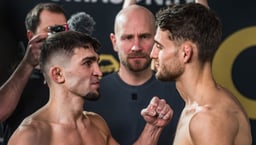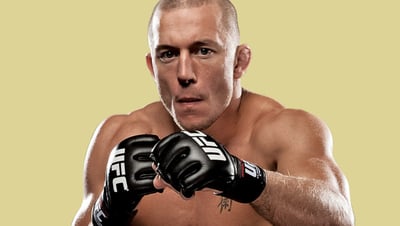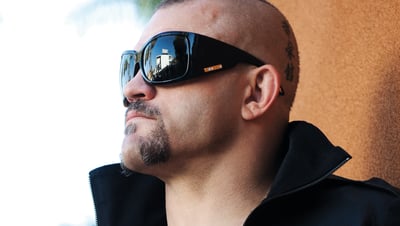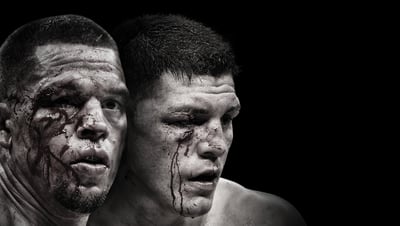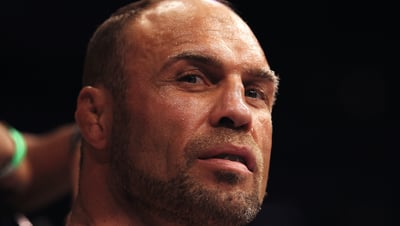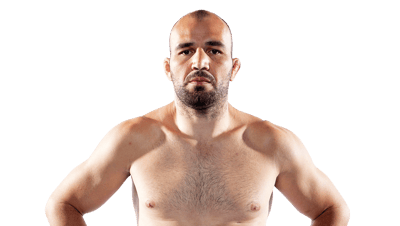
Issue 106
October 2013
PAT MILETICH Commentator and ambassador
The first UFC 170lb king and a UFC tournament champion was a pioneer in MMA’s development. Having become an acclaimed coach and ambassador, he tells FO how he helped forge the sport
Make a list: Matt Hughes, Jens Pulver, Robbie Lawler, Tim Sylvia, and then guys like Jeremy Horn, Ben Rothwell, Bart Palaszewski and Rory Markham. All together it’s 10 MMA world champions and dozens of world-class contenders all from the Miletich Fighting Systems camp headed up by Pat Miletich, one of the most influential figures in mixed martial arts.
And that hugely impressive list of stars is simply the fruits of Miletich’s labor post-competition, let’s not forget. Pat was also the first-ever UFC welterweight champion – making four successful defenses during a near three-year reign from October 1998 through to May 2001, as well as the UFC 16 welterweight tournament winner.
Yet after almost two decades in MMA, what’s Pat’s personal highlight? After hundreds of victories, both as coach and as a champion, which night is the one that burns brightest in his mind? “It’s fun to look back,’ he tells FO with a smile, “but that’s a tough question. The best part has always been just training with my guys. There was an awful lot of energy and a lot of hungry people that wanted to be the best in the world. Everybody pushed each other.
“Nobody was allowed to loaf and if you did you got your ass kicked. That’s just the way it was. Having your name on the building wasn’t about trying to be the man, but more of a feeling of not wanting to get your ass kicked too much. If your name is on the building, you should probably be able to hang with the guys (laughs).”
Indeed the whole Miletich Fighting Systems concept wasn’t born out of any burning desire to become a coach after competing, but more a way of improving himself as a fighter. He explains: “I was just trying to look into the future a bit. I knew if I didn’t have good training partners I’m certainly not going to become a great fighter. I had to teach people the fundamentals of MMA as fast as I could and, luckily, I had guys who were very capable and very good athletes and good guys in general. Not only did they absorb the knowledge fast but they also looked for more of it as well.
“Jeremy Horn was a guy who was a very cerebral fighter, he was a very good coach and very instrumental in helping build that great group of guys. He spent a lot of extra time teaching the grappling aspect and things like that. That’s something Jeremy never got enough credit for. He invested an awful lot of time in Jens Pulver, Matt Hughes, Tim Sylvia and the other guys as well.”
Not surprisingly, if the walls at MFS’ gym could talk, there could well be a series of books written about the extremities of life training in MMA. Pat breaks back in his chair as he plucks one tale from memory. “Just to get an idea of the intensity in the room, here’s a story about Jens Pulver and Sam Hoger, who was training with us at the time,” he recalls.
“Hoger had been training but for some reason he’d stopped during the fighter’s training time and would come in and train on his own for three or four hours then leave when the fight team came in to train.
“We couldn’t understand what was going on. So Jens Pulver, one night when all the fighters were in the room, yelled at Hoger, basically asking, ‘Where the f**k are you going?’ Hoger said, ‘I’m done training. I’m going home.’ Jens says, ‘What do you mean you’re done training? You haven’t trained with us for two weeks!’ And Hoger says, ‘I just got done training. I train for four hours every day.’ Jens replies, ‘You aren’t training because you aren’t training with us. If you want to be a part of this team you’re going to train with the team.’ But Hoger insisted he was going home, so Jens ran across the wrestling room and got in Hoger’s face and says, ‘You either put your equipment on right now or I’m gonna f**king knock you out right where you stand.’ So Hoger put his equipment on and from there on out he trained with the team.”
With so much experience and knowledge at his finger tips it’s no surprise that Miletich has another bunch of prospects making their own way in the sport out of the team’s Iowa training base. Yet who does the coach enjoy watching compete inside the Octagon today?
“I really like Daniel Cormier a lot,” he says. “He’s the fighter-of-the-future type guy. His high-level wrestling coupled with his understanding of the striking side, they’ve done a great job at AKA. They’ve done a great job with all the guys out there.
“He’s really the type of guy I see as the future of the sport. Jon Jones is a great athlete, a talented guy, but Cormier is a guy who represents himself at a very high level and represents the sport the way it should be represented. That’s really where the future belongs, with a guy like Daniel Cormier.”
As for his own halcyon fighting days, Miletich has more than a couple of career highlights to look back on fondly. Yet when asked to pick a fight or two out for new fans to catch online or via DVD, he’s got a more serene answer to what new MMA fans should take from the early days of the sport.
He adds: “I’d just like everyone to understand the struggles, the tension and the stress that was going on for the athletes, that we were all working to make it a legit sport. Not only were we training mentally and physically for a fight and an opponent, but even more so I was doing live televised debates with politicians to try to keep the sport legal in a state I was going to be competing in.
“To stay motivated for a fight is one thing, to go through the day-to-day grind and mental stresses is one thing, but couple that with the fact we aren’t even 100% sure the event is even going to happen is another. You’re sailing toward an island you don’t even know is there. It’s that kind of feeling. They were difficult years.”
...

